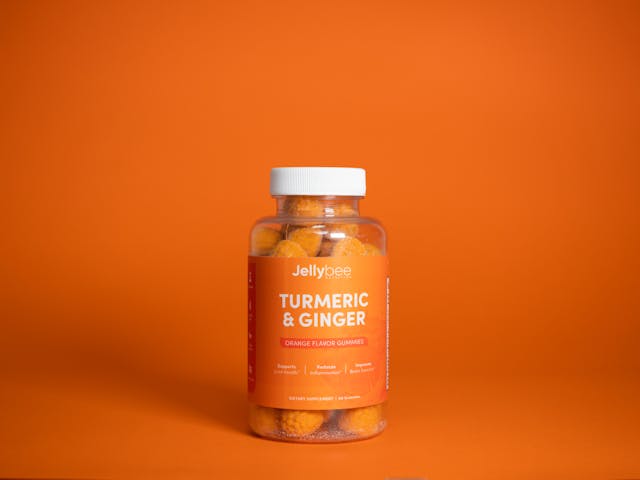
Turmeric has grown in popularity in recent years due to people extolling its virtues on social media sites such as Instagram. However, this root has actually been used in Ayurvedic and Chinese medicine for thousands of years to improve digestion and combat inflammation. Turmeric is traditionally added to dishes as a spice and is also available in supplement form. The primary ingredient in this versatile root is called curcumin and it is responsible for many of the benefits of turmeric consumption. Let’s take a look at several of these benefits below.
Lowering Inflammation

Experiencing short-term inflammation is a normal part of your body’s healing process. However, long-term inflammation can lead to the development of chronic conditions. Curcumin contains active compounds called curcuminoids that assist the body in reducing inflammation. Curcumin supplements reduce inflammation by inhibiting certain pathways responsible for inflammatory responses. It also has antioxidative properties that assist in clearing free radicals responsible for damaging tissues and cells in the body.
Improving Memory

A study conducted on Asian populations in 2006 found that individuals who consumed turmeric in their meals scored higher on cognitive tests than those who did not. Another study conducted in 2018 found that individuals aged 51 to 84 who consumed 90 mg curcumin supplements twice a day experienced an improvement in memory compared to those given a placebo. The researchers believe their brains may have been protected from developing diseases related to memory due to curcumin’s anti-inflammatory effects. However, this study was relatively small and more research is required to verify these findings.
Reducing Joint Pain

Another of the benefits of turmeric is that it can also potentially reduce joint pain due to its antioxidant and anti-inflammatory properties. Certain pathways are overactive in individuals suffering from arthritis, such as tumor necrosis factor-alpha (TNF-α) and cyclooxygenase-2 (COX-2). Curcumin inhibits these pathways, leading to a reduction in joint stiffness and pain. Studies have revealed that turmeric supplements may be just as effective as some non steroidal anti-inflammatory drugs when it comes to relieving osteoarthritis. In addition, there are none of the typical associated side effects, such as dizziness, constipation, drowsiness, and indigestion.
Impacting Cancer Cells

A study published in 2015 found that curcumin may potentially be able to fight of certain types of cancer. However, these studies were conducted in vitro, and further studies will need to be carried out to determine the effect on human children and adults. However, the study’s researchers also noted that curcumin has been shown to slow down or prevent tumor cell activity in certain digestive and skin cancers. As promising as these results are, more research will need to be conducted to verify many of these claims.
Supporting Heart Health

Curcumin also helps reduce many factors associated with heart disease, such as oxidative stress, systemic inflammation, and LDL cholesterol. It also improves endothelial function, resulting in better circulation and blood vessel function. Several studies have also shown that turmeric supplements could assist in lowering systolic blood pressure if taken for around three months. However, the same impact has not yet been observed in diastolic blood pressure.
Combatting Hay Fever

For many people, certain seasons bring on hay fever and the multitude of symptoms associated with it, such as itching, sniffling, and a runny nose. However, studies have suggested that curcumin may be able to help due to its anti-inflammatory and antioxidant properties. An animal study from 2008 found that curcumin inhibited the release of histamines. This resulted in a significant reduction of symptoms associated with hay fever.
Improving Gut Health

Another of the benefits of turmeric is that curcumin can also reduce gut inflammation due to its antioxidant and anti-inflammatory properties. This could help combat conditions such as inflammatory bowel disease and irritable bowel syndrome. It may also reduce harmful bacteria and promote beneficial bacteria growth, resulting in a more balanced gut biome. Curcumin supplements may also support the production of bile, which is necessary for overall digestive health and digestion of fat.
Easing of Depression Symptoms

One small study found that people battling major depressive disorders benefitted from taking curcumin in addition to their usual antidepressants. However, the study was only conducted over a period of six weeks, which is an insufficient amount of time to reach any conclusions. The study found no ill effects in using curcumin alongside the antidepressants and a few potential benefits were noted. More thorough studies will need to be carried out to verify any of these findings.
Enhancing Brain Health

Inflammation and oxidative damage have both been closely associated with neurodegenerative disease development. Therefore, protecting the brain from these high-risk factors is crucial if one wants to maintain brain health. Several studies have shown great potential in improving cognitive health of those with Alzheimer’s disease by reducing these processes. While the benefits of turmeric use from these studies may seem encouraging, more long-term studies will need to be conducted to assess the full impact of turmeric on neurological conditions.
Protecting the Liver

According to a review of several studies, using higher amounts of curcumin supplements may benefit non-alcoholic fatty liver disease. This disorder is characterized by the accumulation of fat in the liver that is not caused by excessive alcohol consumption. It is one of the most prevalent causes of liver disease in the United States, according to the National Institutes of Health.